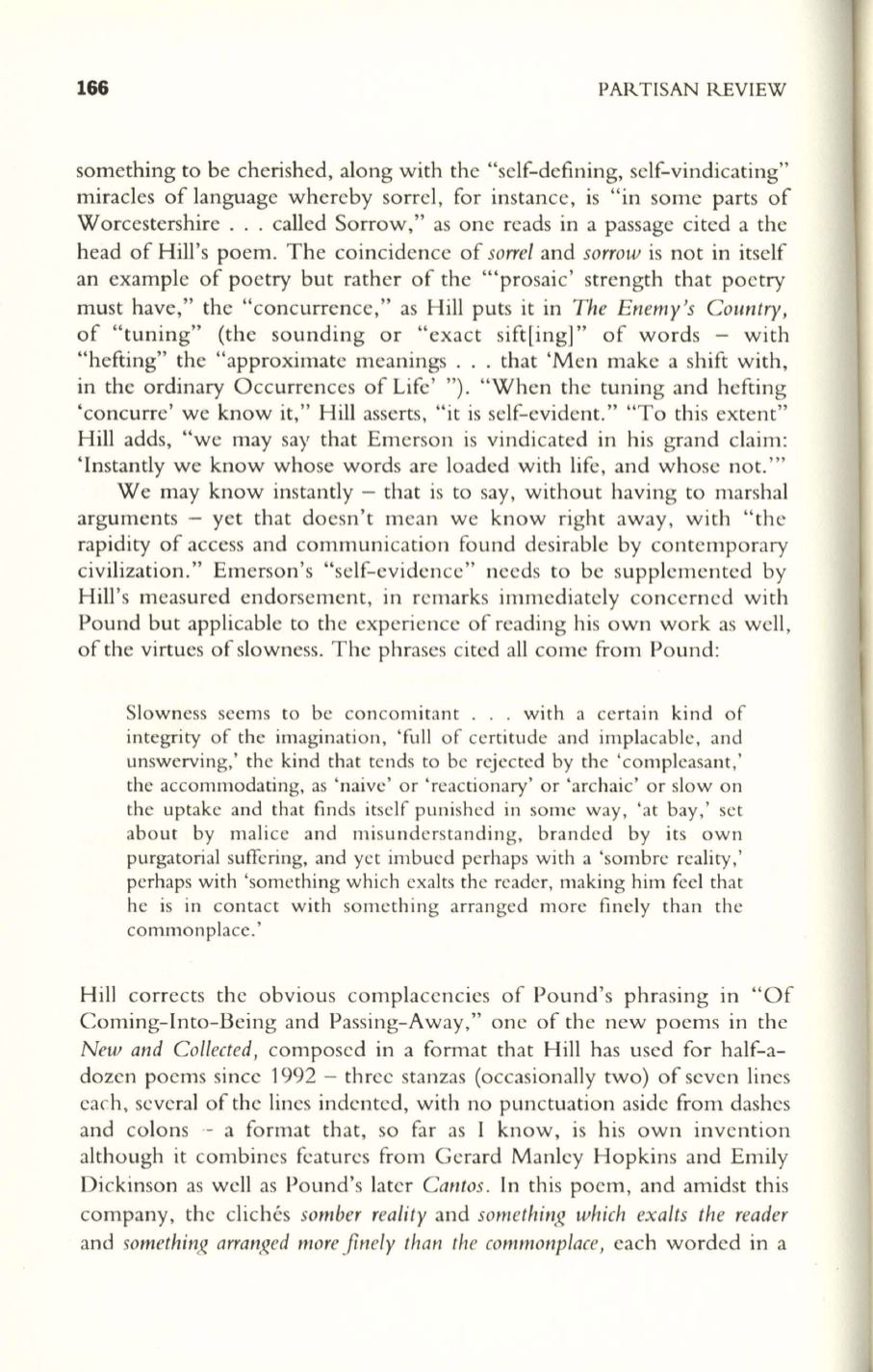
166
PARTISAN REVIEW
something to be cherished, along with the "self-defining, self-vindicating"
miracles of language whereby sorrel, for instance, is "in some parts of
Worcestershire ... called Sorrow," as one reads in a passage cited a the
head of Hill's poem. The coincidence of
sorrel
and
sorrow
is not in itself
an example of poetry but rather of the '''prosaic' strength that poetry
must have," the "concurrence," as Hill puts it in
The Enemy's Country,
of "tuning" (the sounding or "exact sift[ing]" of words - with
"hefting" the "approximate meanings ... that 'Men make a shift with,
in the ordinary Occurrences of Life' "). "When the tuning and hefting
'concurre' we know it," Hill asserts, "it is self-evident." "To this extent"
Hill adds, "we may say that Emerson is vindicated in his grand claim:
'Instantly we know whose words are loaded with life, and whose not. ",
We may know instantly - that is to say, without having to marshal
arguments - yet that doesn't mean we know right away, with "the
rapidity of access and communication found desirable by contemporary
civilization." Emerson's "self-evidence" needs to be supplemented by
Hill's measured endorsement, in remarks immediately concerned with
Pound but applicable to the experience of reading his own work as well,
of the virtues of slowness. The phrases cited all come from Pound:
Slowness seems to be concomitant ... with a certain kind of
integrity of the imagination, 'full of certitude and implacable, and
unswerving,' the kind that tends to be rejected by the 'compleasant,'
the accommodating, as 'naive' or 'reactionary' or 'archaic' or slow on
the uptake and that finds itself punished in some way, 'at bay,' set
about by malice and misunderstanding, branded by its own
purgatorial suffering, and yet imbued perhaps with a 'sombre reality,'
perhaps with 'something which exalts the reader, making him feel that
he is in contact with something arranged more finely than the
commonplace. '
Hill corrects the obvious complacencies of Pound's phrasing in "Of
Coming-Into-Being and Passing-Away," one of the new poems in the
New and Collected,
composed in a format that Hill has used for half-a–
dozen poems since 1992 - three stanzas (occasionally two) of seven lines
each, several of the lines indented, with no punctuation aside from dashes
and colons .- a format that, so far as I know, is his own invention
although it combines features from Gerard Manley Hopkins and Emily
Dickinson as well as Pound's later
Cantos.
In
this poem, and amidst this
company, the cliches
somber reality
and
something which exalts the reader
and
something arranged more finely than the commonplace,
each worded in a


